Planning on doing the Ha Giang Loop in Vietnam but don’t know where to start?
Then this ultimate Ha Giang Loop travel guide is for you!
In this guide, you will find a detailed 4 day Ha Giang Loop route, complete with attractions to visit, where to stay, and many of our travel tips you won't want to miss.
What’s more, we have answered the most important questions you might have about doing the Ha Giang Loop in Vietnam. Such as the best time to do the loop, how to get to Ha Giang from Hanoi, and many more!


.jpg)
What is the Ha Giang Loop
Ha Giang has become one of the most popular tourist destinations in Vietnam for travelers seeking unique experiences and adventures. The best way to see the region is to take a motorcycle trip, known as the Ha Giang Loop, that begins and ends in Ha Giang City.
The Ha Giang Loop is a motorbike route in Vietnam that takes you on a journey through some of the most scenic parts of the northern region. Along the way, you will get to experience breathtaking views, traditional villages, and a range of cultures from different ethnic minorities.
.jpeg)
The loop has grown in popularity in recent years, and it is now one of Vietnam's most popular tourist destinations, alongside Halong Bay and Hoi An.
So, if you're going to do a motorbike loop in Vietnam, do the Ha Giang Loop soon before it gets too crowded.
.jpeg)
How Long is the Ha Giang Loop
The Ha Giang Loop can be completed in 3 days while visiting most of the main highlights in the area. However, to have the best experience possible, we recommend doing the Loop in 4 days!
This way, you will also have enough time to appreciate the stunning landscape that Ha Giang has to offer. This also gives you the opportunity to really get to know the area, including the locals and their culture.
Have you decided on your Vietnam Itinerary yet? Check our latest Itineraries here!
.jpeg)
Ha Giang Loop Map
Here's a map of the Ha Giang Loop to help you navigate this beautiful region of Vietnam. It travels clockwise and starts and ends in Ha Giang City. You can, however, drive in the opposite direction if you prefer.
.png)
Ha Giang Loop Route: 4 Day Itinerary
One of the features of the Ha Giang Loop is that there is no set route. You can decide to take a shorter or longer loop depending on how much time you have. This means that you can customize your trip to include whatever sights or experiences you want to make the most of your time in Ha Giang.
This Ha Giang Loop route is a 4 day itinerary that takes you to most of the main highlights, as well as some hidden gems along the way!
.jpeg)
Day 1: Ha Giang City to Lao Xa
Driving Distance: 130km
Route: Ha Giang City - Quan Ba - Yen Minh - Lao Xa
Start your day early, preferably before 8am, to allow enough time on the road. On the first day, take QL4C to Lao Xa. The first leg of the journey involves leaving Ha Giang City and gradually ascending into the mountains.
Your first stop should be at Quan Ba Heaven Gate. This is a popular coffee stop because of the stunning views of the region's lush valley and mountains ranges. Note that it gets busier during the day, as it's the perfect place to pause and take in the stunning beauty of the area.
.jpeg)
Another viewpoint worth visiting is just a short drive from the coffee shop. Fairy Bosom refers to the famous twin hills in Quang Ba. You can see it while driving through Quang Ba pass, but we recommend stopping at this viewpoint to fully appreciate it. A short stairway climb leads to the top of the hill, where there is an excellent viewing platform.
.jpeg)
Continue driving on QL4C until you reach Cau Can Ty Bridge, then take the off-ramp to the left for an alternate road to Yen Minh. Drive for about 2km until you reach a very large tree on the edge of a cliff. This is another popular stopping point with nice views of the river. You'll find a local shop with plastic chairs to sit on.
Tip: Drive another 500m from the tree to find a large boulder where you can climb and enjoy the views!
.jpeg)
Drive to Yen Minh Town for lunch. You will find numerous restaurants that serve lunch along the QL4C road in the main town. Most restaurants serve traditional Vietnamese food, which includes rice or noodles with meat and vegetables.
After lunch, you will drive through Tham Ma Slope, one of the highlights of the Ha Giang Loop. It's on QL4C, and stopping at this viewpoint is the best way to take in the scenery and winding road. It does get busy as it's a popular stop and you will find local children carrying flower baskets while waiting to be photographed.
.jpeg)
They do ask for money in exchange for photos, which can be tempting given their adorable faces, but we don't encourage it. Although these children may seem harmless, it is important to understand that giving them money for photos does not help their overall well-being. Instead, take photos of the beautiful scenery and keep driving.
.jpeg)
Along the way, you'll pass by the Pho Cao Ethnic Market. This market is like no other, as it has no set schedule and no one knows when the next one will be held except the locals. We were fortunate enough to visit it on our recent trip, and you may be as well, so ask the host of your homestay if the market is open. If it does, go early in the morning when it becomes a trading hub for many ethnic minorities.

Read: A Journey Back in Time: The Pho Cao Tribal Market
.jpeg)
Continue on QL4C until you reach this off-route road on the left. Drive up this narrow road, zigzagging on the side of the mountains, until you reach the small village of Lao Xa.
As Ha Giang has grown in popularity in recent years, the Loop is dotted with many homestays to choose from. Lao Xa, a small village, is unique. It is a charming town away from the main tourist attractions, still authentic, and with only one homestay to stay at.
Settle in at your homestay and walk around the small village discovering the town before having dinner hosted by the Hmong Family. Read our complete guide to the best things to do in Lao Xa Village.
Tip: Book your stay at Nhà Cổ Lao Xa Homestay in advance. Book Now!
.jpeg)
Day 2: Lao Xa to Meo Vac
Driving Distance: 96km
Route: Lao Xa - Lung Cu - Dong Van - Meo Vac
Begin your second day early as you will be driving through the Dong Van Karst Plateau Geopark, a UNESCO World Heritage Site filled with limestone pinnacles jutting out above rolling hillsides.
.jpeg)
Travel to QL4C in the direction of Moon’s Surface, a rock desert landform at Sa Phin. There is an observatory here, and you can walk through the rock formations, but be careful. Locals sell snacks and drinks near the entrance, where you can sit and enjoy the view.
.jpeg)
A bit off route, drive next to Dinh Vua Meo, a well preserved Hmong palace worth a visit if you're interested in history. It was built in 1921 for a Hmong king, with strong influences from Chinese, Hmong, and French architecture.
Watch out for the detailed tiled roof and the intricately engraved wooden parts, which symbolize the king's wealth and prosperity. Which he obtained from trading goods, primarily opium in ancient times. A ticket to the palace costs around 1 USD.
.jpeg)
Return to QL4C and continue on to Lung Cu Flag Point, one of the highlights of the Ha Giang Loop. On top of Lung Cu Peak, there is an impressive monument with a large Vietnamese flag. You'll have to walk up several steps to reach the monument, and then another set of spiral stairs will take you to the summit. It's a bit of a climb, but when you reach the top, you'll be amazed by the panoramic views over Northern Vietnam's mountainous landscape.
Do you want to explore more of the area?
Consider staying at Lo Lo Village, which is nestled in the rocky plateau of Ha Giang province and is regarded as one of the most remote villages in the north of Vietnam. Find all accommodations in Lo Lo Village here.
.jpeg)
Drive to Vietnam's northernmost point from the Lung Cu flag point. This is probably one of the most scenic drives in the area. You'll see breathtaking views of mountains and winding roads as far as the eye can see.
Tip: Be extra cautious as the road becomes narrow and steep.
.jpeg)
When you arrive at the observatory, you will find a two-story gazebo from which you can gaze out over the vast landscapes and idyllic, sharp rolling hills. Along with the long Chinese fence that stretches down from the mountain to the Nho Que River.
.jpeg)
Drive next to Dong Van town and stop here for lunch. You will find many restaurants lined up along the QL4C to choose from. Then, head next to the Youth Monument, where you will have stunning views of the majestic limestone formations.
.jpeg)
The Youth Monument is made of carved natural stone and serves as a reminder of the hard work of the youth volunteers who helped build the Happiness Route, which connects all of these towns. Additionally, you can visit the Happiness Road Museum, and next to it is a coffee shop where you can grab some drinks to enjoy the views.
.jpeg)
Just past the coffee shop, take the Ha Giang Skypass which is a narrow road that heads towards an observatory offering breathtaking panoramic views. The drive to the viewpoint, which is a rock that sticks out from the side of the cliff about 15 meters above the road, is breathtaking.
There is a rocky trail that leads up to the observatory rock, but the climb is quite dangerous, so we didn't even consider it because the views from the road were sufficient and the risk wasn't worth it.
.jpeg)
.jpeg)
From the observatory, head back down to Youth Monument and continue on the QL4C to drive the famous Ma Pi Leng Pass. It is arguably one of Northern Vietnam’s most breathtaking locations where sheer cliffs drop down into lush valleys below. Ma Pi Leng Pass is an iconic journey, with its sharp, zig-zagging turns and spectacular views of mountain ranges and the Nho Que River.
Stop by for some drinks and a quick snack at Tu San Coffee, which also offers views of the Nho Que River from above. The coffee shop is quite popular, so expect some crowds.
.jpeg)
If you wish to fully appreciate the Nho Que River, you may also board a boat from the dock. This is an excellent way to experience the majestic beauty of the Nho Que River up close and personal.
Otherwise, continue driving till you reach the town of Meo Vac, where you will spend your second night in the Ha Giang Loop. Meo Vac is a great town with plenty of accommodations and food options to choose from. Find all accommodations in Meo Vac here.
.jpeg)
Day 3: Meo Vac to Du Gia
Driving Distance: 70km
Route: Meo Vac - Lung Phin - Mau Due - Du Gia
Get up early and go to the largest market in the area. People from different ethnic groups get together at Meo Vac Market every Sunday to buy and sell goods.
Tip: We recommend visiting the market around 6am when it is bustling with mostly locals and fewer tourists.
.jpeg)
It is an interesting market that is full of life and color. You can find everything from vegetables and rice wine to cows and pigs. A visit to Meo Vac Market is a unique opportunity to learn about the region's cultural diversity that should not be missed!
Spend your time walking around the market before heading to Du Gia after breakfast. We recommend that you leave no later than 10am. This day you'll be driving through mountain passes and smaller villages with limited food options.

Read: Visiting the Meo Vac Sunday Market in Ha Giang
Tip: Before you leave, make sure to get some snacks and drinks.
.jpeg)
Take DT176 and enjoy the scenery as you wind through beautiful valleys and winding mountain roads. You will be surrounded by breathtaking views throughout the day, and there are no designated viewpoints. So you can stop anywhere to enjoy the views, but watch out for incoming traffic!
The road to Lung Phin Valley is one of the most beautiful drives in the Ha Giang loop. Despite the dust and traffic from the ongoing construction, the road still offers a magnificent view.
.jpeg)
You can stop and eat lunch in Mau De's main town. You will find a few restaurants along the main road.
Standing on top of Mau Due Slope near Lung Ho is this scenic location, where you can stop and take in the breathtaking views of the surrounding mountains. On clear days, you can see Yen Minh, Mau Due, and the roads heading to Meo Vac!
.jpeg)
Only a half-hour drive from the viewpoint is another scenic stop offering amazing views of the Lung Ho valley. Here, you will find a platform for proper viewing and a coffee shop to enjoy some drinks while surrounded by majestic mountains.
After the viewpoint, continue driving to Du Gia town, where you will spend the night. Du Gia is a beautiful and tranquil village surrounded by lush green hills, making it an excellent place to end your day. Find all accommodations in Du Gia here.
If you arrive in town early, you can spend the rest of the day walking around the village, or you can go to the Du Gia waterfall, located about 3km away.
Day 4: Du Gia to Ha Giang City
Driving Distance: 110km
Route: Du Gia - Lung Tam - Thuan Hoa - Ha Giang City
As you drive along the winding roads of DT181, marvel at the spectacular beauty of Ha Giang's mountain ranges and valleys and make your way back to Quan Ba. Leave early and pack plenty of snacks and drinks for the road as you won't find many shops along the route.
Visit Lung Tam Linen Craft Village and witness the process of the Hmong people weaving linen, which has been part of their traditional craftsmanship for centuries. There is also a shop where you can support the locals by purchasing linen products like wallets, bags, and other accessories.
.jpeg)
From the craft village, head back to the Dong Ha main town for lunch. You will find a few restaurants along the main road. After lunch, you have the option of taking the QL4C back to Ha Giang (the same route as from Day 1). You can also take an alternate route that follows the Song Lo River, which is longer but more scenic.
.jpeg)
Taking the QL4C route is a great option if you're in a hurry, as it's on the main road and will get you back to Ha Giang quickly.
Otherwise, take the riverside route for a more remote and quiet ride, driving in the direction of Thuan Hoa. The roads here are a bit narrow but mostly paved, and there is less traffic!
.jpeg)
Stop by the Little Mapileng Canyon for spectacular views of the river and the steep mountains. If you have time, you can take a boat ride or simply walk down and enjoy the breathtaking views.
Take the Thuan Hoa bridge from the canyon and follow the QL4C route back to Ha Giang city. The canyon is only about 15km from the city.
From Ha Giang City, you can take the night bus back to Hanoi, as some buses depart at 9pm.

.jpeg)
You can also stay an extra night in Ha Giang and take the bus the next day. For your last night in Ha Giang, we recommend staying in Thon Tha Village just outside the main town for a more relaxing stay. Find all accommodations in Ha Giang here.
Tip: We recommend staying at Mr. Thien Traditional Homestay. To book, call +84386834043.
.jpeg)
Is the Ha Giang Loop Dangerous
Ha Giang's roads are notoriously dangerous, with sharp curves, steep inclines, and long stretches without guardrails. The roads are often narrow and winding, so caution must be taken when driving these sections of the loop. The loop can be a bit challenging for beginners, as it does involve some off-road riding and steep climbs in the mountainous areas.
.jpeg)
There are areas where landslides occur during the rainy season, so some roads will be under construction. Or just general road maintenance. You should also keep an eye out for motorbikes or other vehicles on the road, as they can move very quickly around blind turns or over hills.
.jpeg)
It is important that you have a valid driver’s license if you decide to do the Ha Giang Loop. Additionally, it is wise to familiarize yourself with the local laws and customs. We strongly suggest that you only drive if you have experience riding a motorbike in Vietnam and on mountain roads. Driving in the city is very different from driving through mountain passes.
The roads in Ha Giang are not the best place to learn how to drive a motorbike. Yes, it truly is a once-in-a-lifetime opportunity. However, your safety and the safety of others are the top priorities. Your insurance will not cover you if you are involved in an accident while driving a motorbike without a valid license.
Tip: Get travel insurance at Heymondo and get 5% off for being our reader!
.jpeg)
Getting Around Ha Giang
The Ha Giang Loop in Vietnam can be done in two ways: on your own or with Easy Rider tours. Here is the breakdown of the pros and cons of each to help you decide what’s best for you.
.jpeg)
Driving on Your Own
Pros:
- Maximum freedom and flexibility to explore the route as you wish.
- You can set your own schedule and explore at your own pace.
- Lower cost as you won’t hire a driver and guide.
- Higher potential for adventure.
- Completely avoid tour groups, vendors, and tourist spots.
Cons:
- Many parts of the loop are incredibly steep and challenging terrain which could be difficult for inexperienced drivers.
- Navigation is tricky while driving through narrow and poor roads.
- You need to have an international driving license.
- Petrol stations can be few and far between in certain areas so make sure to fill up when you can!
.jpeg)
Easy Rider Tours
Pros:
- Easy Rider tours offer the advantage of having a local driver and guide.
- Accommodations, food, and transportation are already planned out, making the journey hassle-free and convenient.
- Safer with experienced drivers.
- Local insights on where to go and what to do.
- Get to know the locals.
Cons:
- Higher cost.
- Not much room for flexibility and spontaneity.
Considering the benefits and risks, we highly recommend taking an Easy Rider tour!
.jpeg)
Ha Giang Loop Motorbike Tour
With all the motorbike trips we've done in the North, we only go with one company – Ha Giang Hideaway!
Not only do they offer the most comprehensive and hassle-free motorbike tours, but their local guides are experienced and knowledgeable about the region. You can also have the option of customizing your itinerary according to your preferences. We've done motorbike trips ranging from 3 to 11 days with them, and they've all been fantastic!
Book your motorbike tour with Ha Giang Hideaway here!
.jpeg)
What’s Included?
Most Ha Giang Tours include the following:
- 3 or 4 day motorbike rental
- English speaking guide
- Experienced driver
- 2 or 3 nights accommodation
- Food: breakfast, lunch and dinner
- Drinking water and snacks
- Gasoline / Petrol
- Motorbike accessories: helmet, basic rain gear, knee and elbow pads, backpack cover, etc.
- Attraction entrance fees
.jpeg)
How Much Does the Ha Giang Loop Cost
Your Ha Giang Loop cost depends on many factors. The main factor is whether you are doing the loop on your own or as part of the tour.
Most typical Ha Giang motorbike tours cost around 100 USD per day with everything included. If you are going on your own, then the cost of the loop can be lower but would depend on your motorbike rental, accommodation, food, gas, and other miscellaneous expenses.
Here are some other popular Ha Giang tours you can book:
.jpeg)
Renting a Bike for the Ha Giang loop
Before renting a motorbike, it is essential to know what type of motorcycle you will be renting, for how long, where you intend to drive, and what the weather conditions are. In addition, you should consider your level of motorbike driving experience and, if necessary, purchase or rent protective gear.
.jpeg)
Where to Rent
Here are the two places we recommend to rent motorbikes in Ha Giang.
- Ha Giang Motorbike Tours & Rental - They provided us with all of the dirt bikes we've used on our northern motorcycle trips over the last three years.
- QT Motorbikes & Tours - They are reliable and have the highest rating online. QT is one of the leading motorbike rental companies, offering unbeatable prices and an outstanding customer service experience based on the reviews online.
Type of Bikes to Rent
Dirt Bike (Experienced Driver): 23 USD per day
Semi Automatic (Intermediate Driver): 11 USD per day
Automatic (Beginner Driver): 11 USD per day
.jpeg)
Important Things to Check Before Renting
This is a list of the most important things to look for before renting a bike. You should have a basic understanding of what makes a good bike.
- Check the rental contract.
- Check the insurance policy. Do you need additional personal insurance?
- Check the overall bike condition. Are there any minor damages to the bike? Do you see any visible scratches or damages? (Take a picture!)
- Check the brakes, tires, lights, horn, engine, suspension, handlebar, etc.
.jpeg)
Ha Giang Weather
Vietnam is a tropical country, so how cold could it possibly get? Right?
Wrong!
Surprisingly, it does get cold in Vietnam.
.jpeg)
Depending on the month you visit, you may expect extreme conditions of hot or cold weather up in the Ha Giang mountains. In the winter months, it can reach temperatures as low as 5°C, with temperatures dropping below 0°C in some areas. Despite the cold winter months, temperatures can reach as high as 37°C in the summer.
.jpeg)
We've done motorbike loops in the north three times: twice in September and November, and once in January. The weather on the mountain gets cold early in the morning and late at night between September and November. However, when the sun is up, it can get warm, and it can be extremely hot around noon.
While it was freezing in January. There was also some rain, which could ruin your experience if you are not prepared.
Tip: Be ready and prepare for all types of weather!
.jpeg)
For those unfamiliar with the climate in Vietnam, it may come as a surprise that such extreme temperatures exist in the northern region. Prepare for cold and warm weather. Bring layers, and a good rain suit goes a long way!
Regardless of the season, it is important to always be prepared as weather conditions can drastically change in a day.
.jpeg)
Best Time to Visit Ha Giang
Ha Giang is beautiful all year round, but its weather is known for being unpredictable. In general, the best time to visit is from late September to early November. During this time, you can expect mild temperatures and a low chance of rain.
There are two distinct seasons in Ha Giang: dry and rainy. Try to avoid doing the Ha Giang loop during the rainy season, which typically lasts from July to early September. If you decide to go during the rainy season, be careful as there may be cases of landslides and floods within the area.
Tip: Always check the weather forecast before doing the Ha Giang loop.
.jpeg)
Aside from the weather, Ha Giang has flower seasons that draw large crowds. Here are the flower seasons in Ha Giang:
January to February: In the spring, you see the blossoming of peach and plum gardens, the most beautiful time of the year. TET holiday also falls around this time with many locals doing the loop.
October to November: The best time to see buckwheat flowers blooming on the slopes and in the foothills of Ha Giang Mountains. While the beauty of these flowers makes this season one of the most desirable times to visit Ha Giang, it is also a very busy time with lots of visitors.
December: The season of the yellow Colza flowers. During this time of year, the hills of Ha Giang are blanketed in a stunning yellow hue.

Read: Best Time to Visit Vietnam
.jpeg)
How to Get from Hanoi to Ha Giang City
Traveling from Hanoi to Ha Giang City is relatively straightforward, with a few different options available. Here are the best ways to reach Ha Giang City from Hanoi.
Bus: The best way to get to Ha Giang from Hanoi is taking the bus. There are several bus companies that run along this route, giving you more options. Buses depart from various points throughout Hanoi. The trip takes about 6 hours and costs about 13 USD.

Tip: For tall travelers, book a VIP bus with bigger cabins. Look for buses with fewer than 22 seats. This will give you more space for your legs, and the extra cost is worth it!
.jpeg)
Van: You can reserve a van to transfer you to Ha Giang City as well. The majority of operators market these as "VIP limousines," which have comfortable seats and are a great alternative for traveling to Ha Giang. There are numerous companies that operate this route, with some even beginning at the airport and ending in Ha Giang City. The trip costs about 16 USD and takes about 6 hours.

Car: Hiring a private car is another option for families or groups of friends going to Ha Giang. Although it's not the most comfortable for extended travel, it can be convenient if you want to stop anywhere along the way. A car will cost you at least 150 USD.

.jpeg)
What to Pack
Determining what to pack for the Ha Giang loop varies depending on what season you are driving. In general, here are the main things you should have in your bag for the Ha Giang Loop:
- Rain Jacket / Windbreaker - The mountains can get quite cold. If you're driving in the winter, make sure you have a proper winter coat because it can get very cold in the mountains. Bring layers as well!
- Rain Suit - Buy a proper rain suit. Even if you visit during the dry season, a sudden downpour can ruin your trip. We recommend investing in high-quality rain pants to go with your rain jacket. On the road, you'll see vendors selling plastic raincoats, but they're of poor quality and not durable.
- Gloves - To protect your hands both from the cold air and blisters from driving.
- Facemask / Bandana - Protection from the cold or from the sun.
- Swimsuit & Towel - For waterfalls or hot springs
- Clothes, Toiletries & Medications
- Sunscreen & Sunglasses
- Mosquito Repellant
- Closed-toe Shoes & Slippers
- Bag Rain Covers
Where to Eat
Expect to find traditional Vietnamese cuisine on the loop. When you’re on the road, you will find most of the restaurants in the main towns within the loop.
Otherwise, we recommend stocking up on snacks and drinks before heading out for the day. Dinner and breakfast are normally served at your homestay for an additional price.
Tip: If you see a village on the way with many food options, consider stopping for lunch.
.jpeg)
Top Ha Giang Travel Tips
The Ha Giang Loop is a once-in-a-lifetime opportunity and you want to make the most of it. Here are our top tips to help you prepare for your Ha Giang Motorbike loop:
- Avoid doing the Ha Giang Loop on weekends or holidays. You won't be able to appreciate the beauty of the mountains and enjoy the drive as much because of all the traffic on the road.
- Open Google Maps at the start of each drive and mark down your homestay location, as well as any stops along the way, to keep track of your journey.
- Never ride after sunset as it’s too dangerous.
- The villages in the Ha Giang Region have great distances between them. If you're doing the loop by yourself, we recommend booking your accommodations ahead of time, especially during peak season.
- The best thing to do when doing the Ha Giang Loop is to take your time and plan accordingly. It is easy to be tempted to push yourself and attempt the loop in a shorter amount of time. However, taking your time will allow you to appreciate the scenery and all that the Ha Giang Loop has to offer.

Read: 17 Things to Know Before Traveling to Vietnam.
.jpeg)
Vietnam Motorcycle Tours
Aside from the Ha Giang Loop, there are numerous motorcycle tours in Vietnam. If you have more time in the north, consider doing a larger loop that includes the Cao Bang region.
If you're in Hoi An, you can take the famous Hai Van Pass, which is known for its scenic winding road with breathtaking views of the sea. Alternatively, you can explore Vietnam’s Central Highlands by motorcycle. The possibilities are endless!
Here are the best Vietnam motorcycle tours:
.jpeg)
And that’s the ultimate guide to doing the Ha Giang Loop.
Exploring northern Vietnam’s breathtaking Ha Giang Loop should not be missed off any traveler's bucket list! With this guide in hand and a sense of adventure, you can be confident that your journey through this unique landscape will be unforgettable.
We hope that you have enjoyed reading this travel guide and that it will help you get the most out of your Ha Giang Loop experience.
Let us know if you have any questions in the comments below.
Some links in this Ha Giang travel guide may be affiliate links.
This means that if you make a purchase after clicking on one of our links, we will receive a small commission at no extra cost to you. Please know that by doing so, you are supporting Colorful Journeys in continuing to provide free high quality content to help you in your travels.
.jpg)


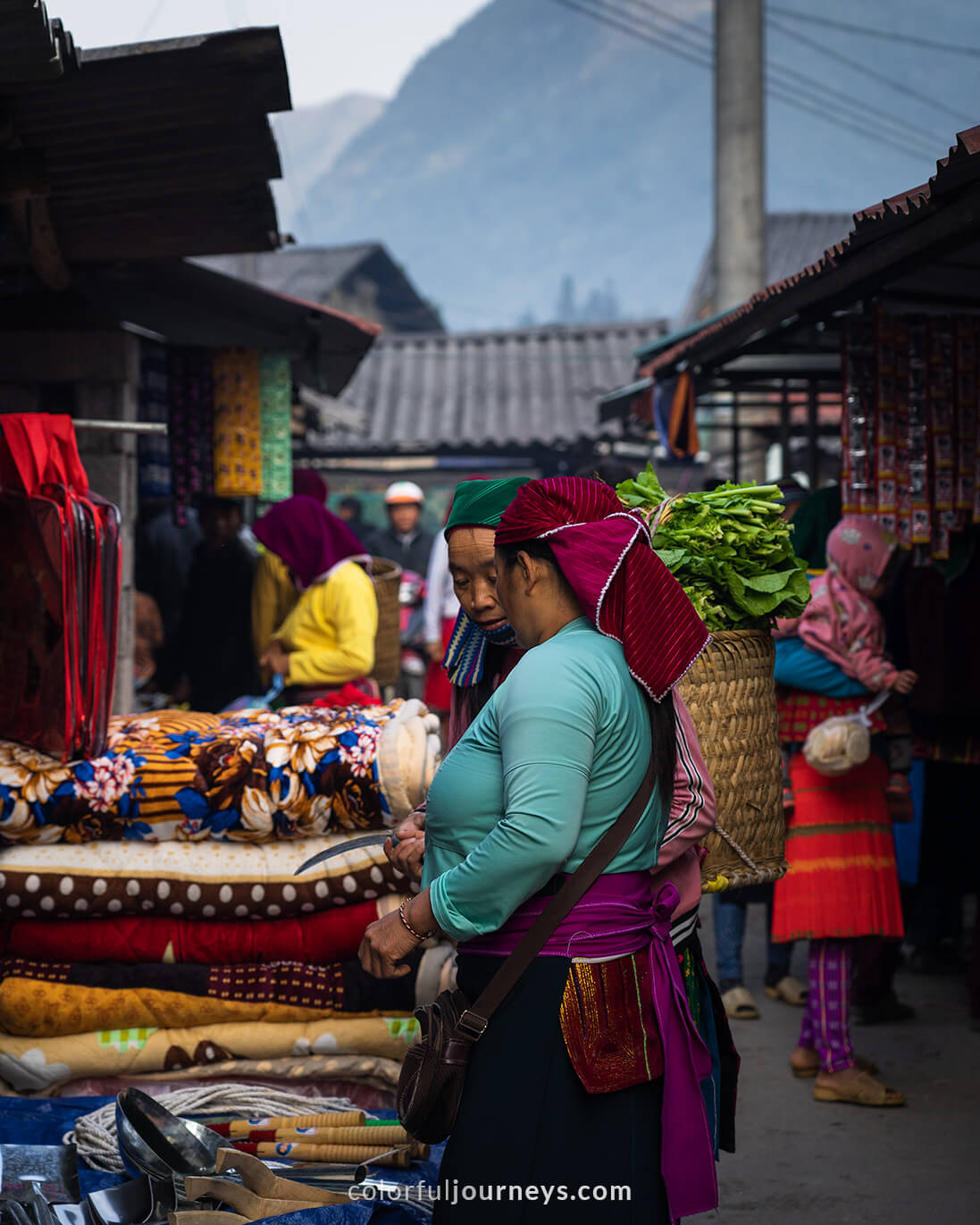




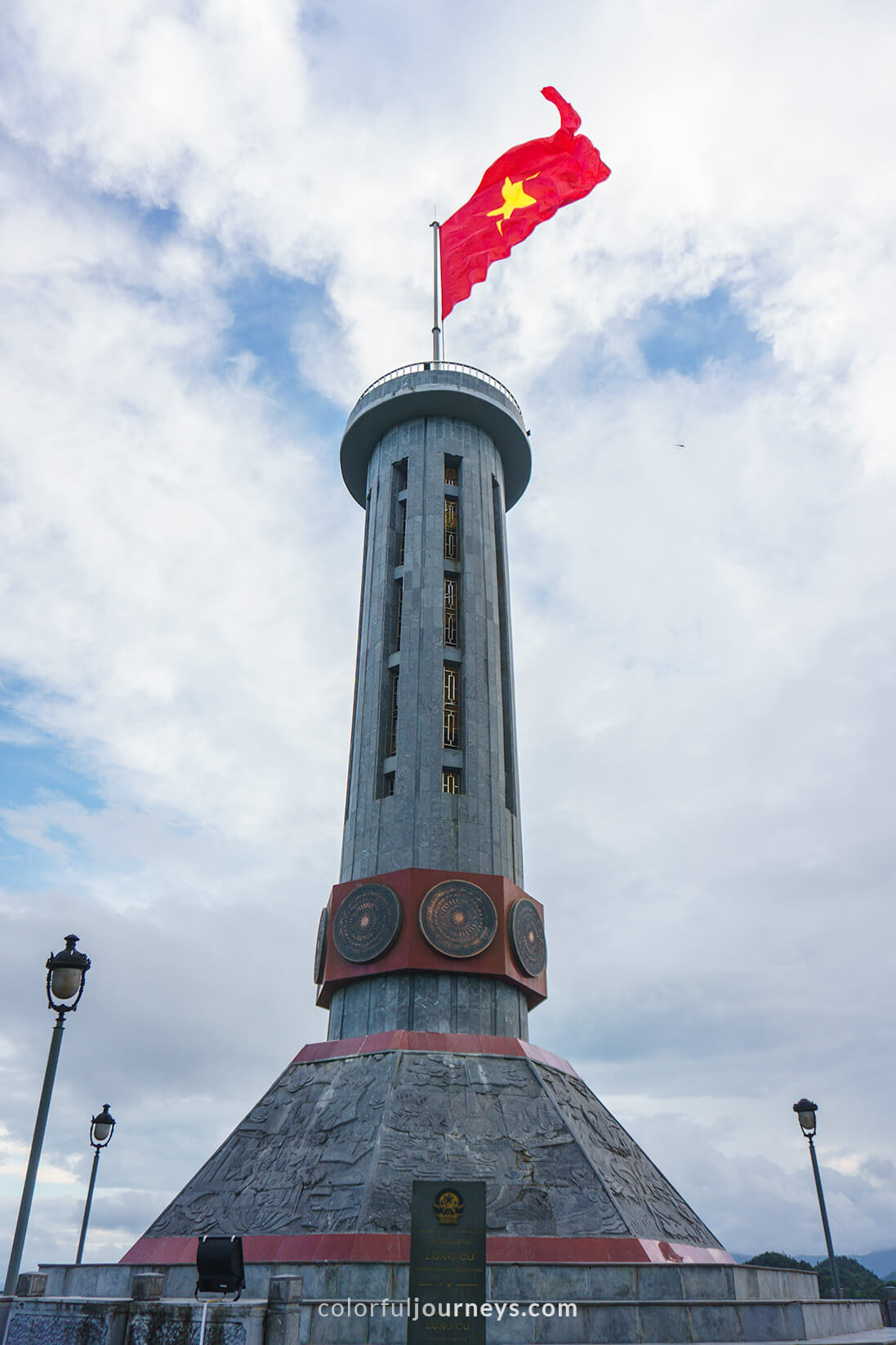
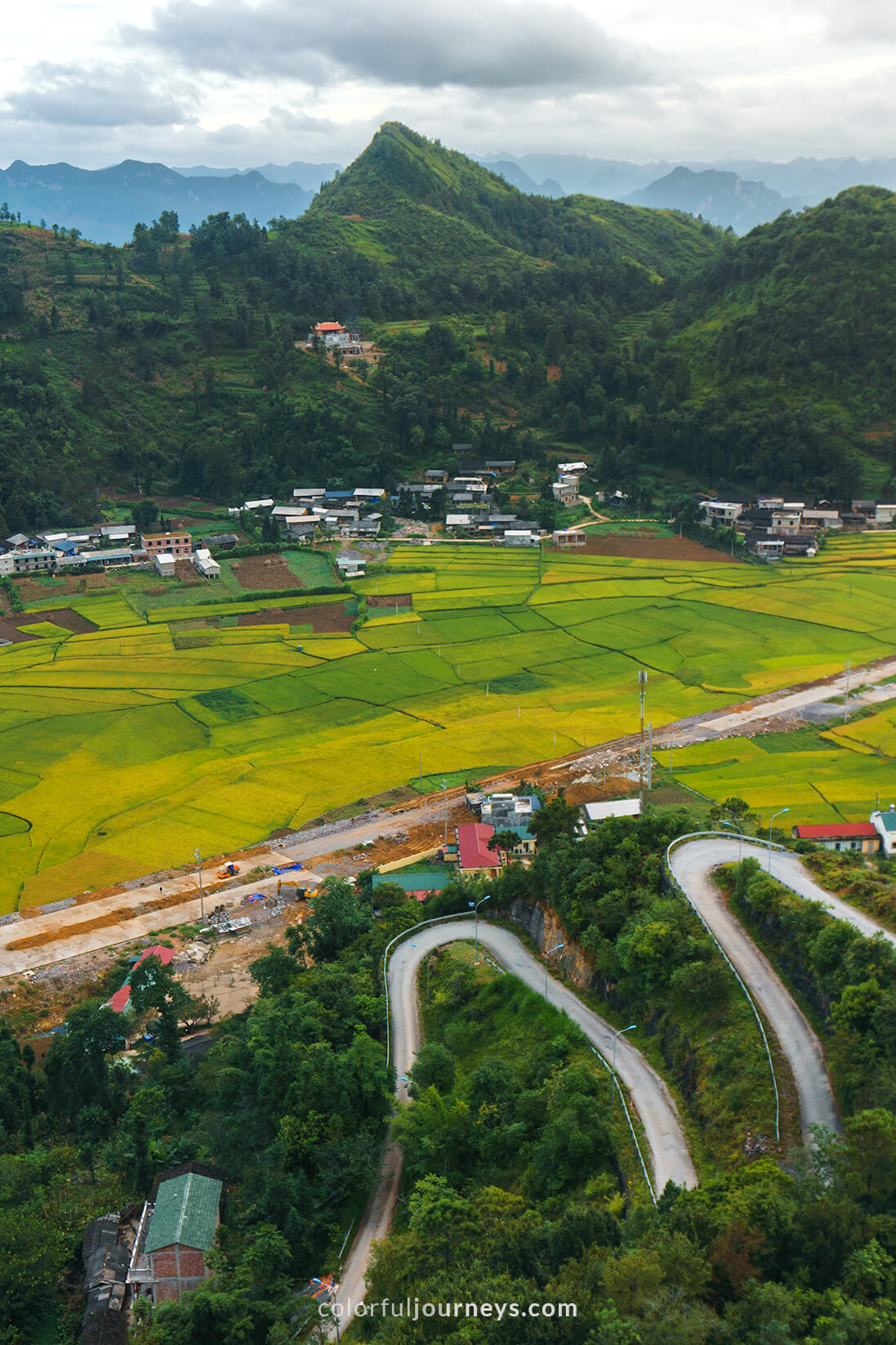



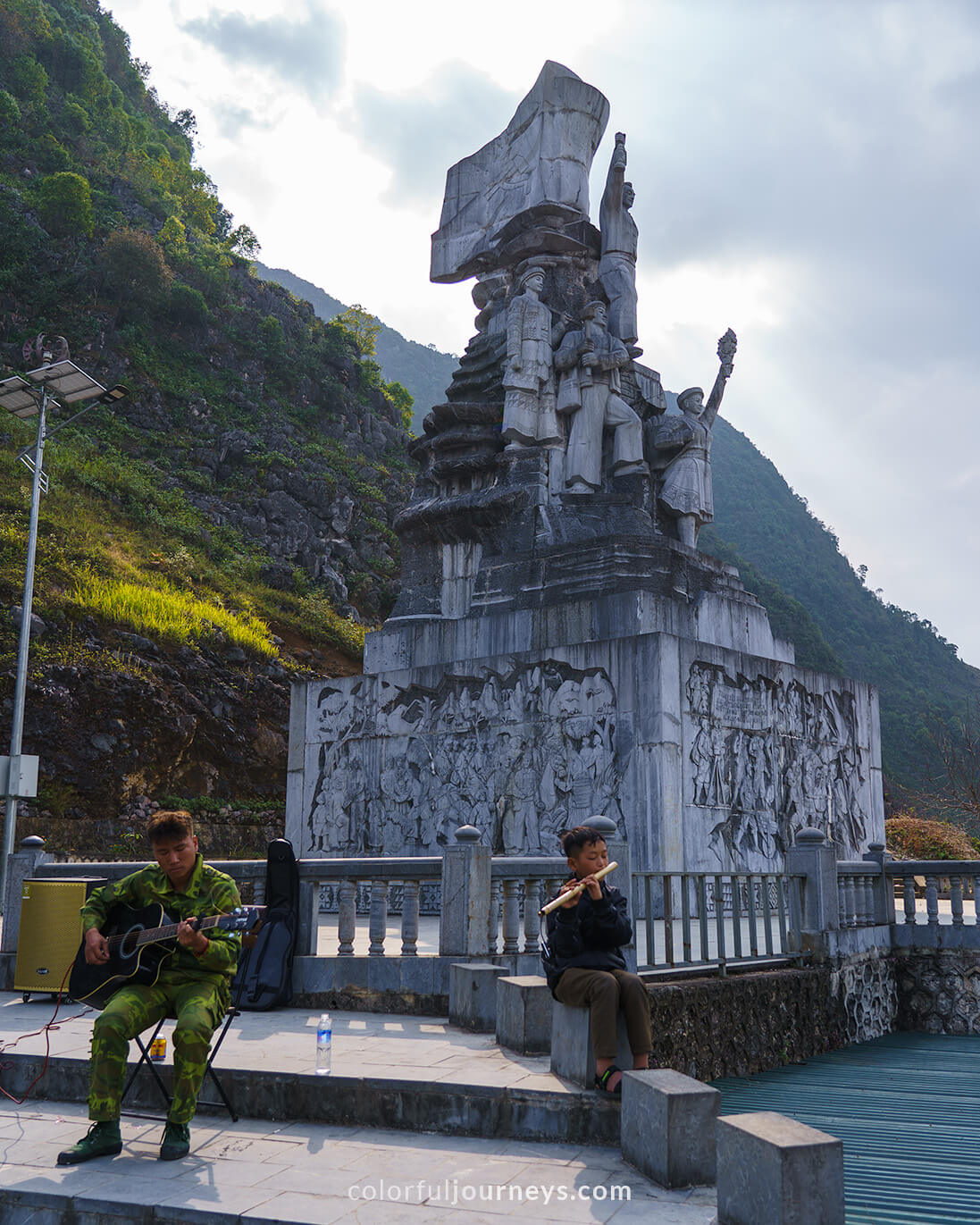


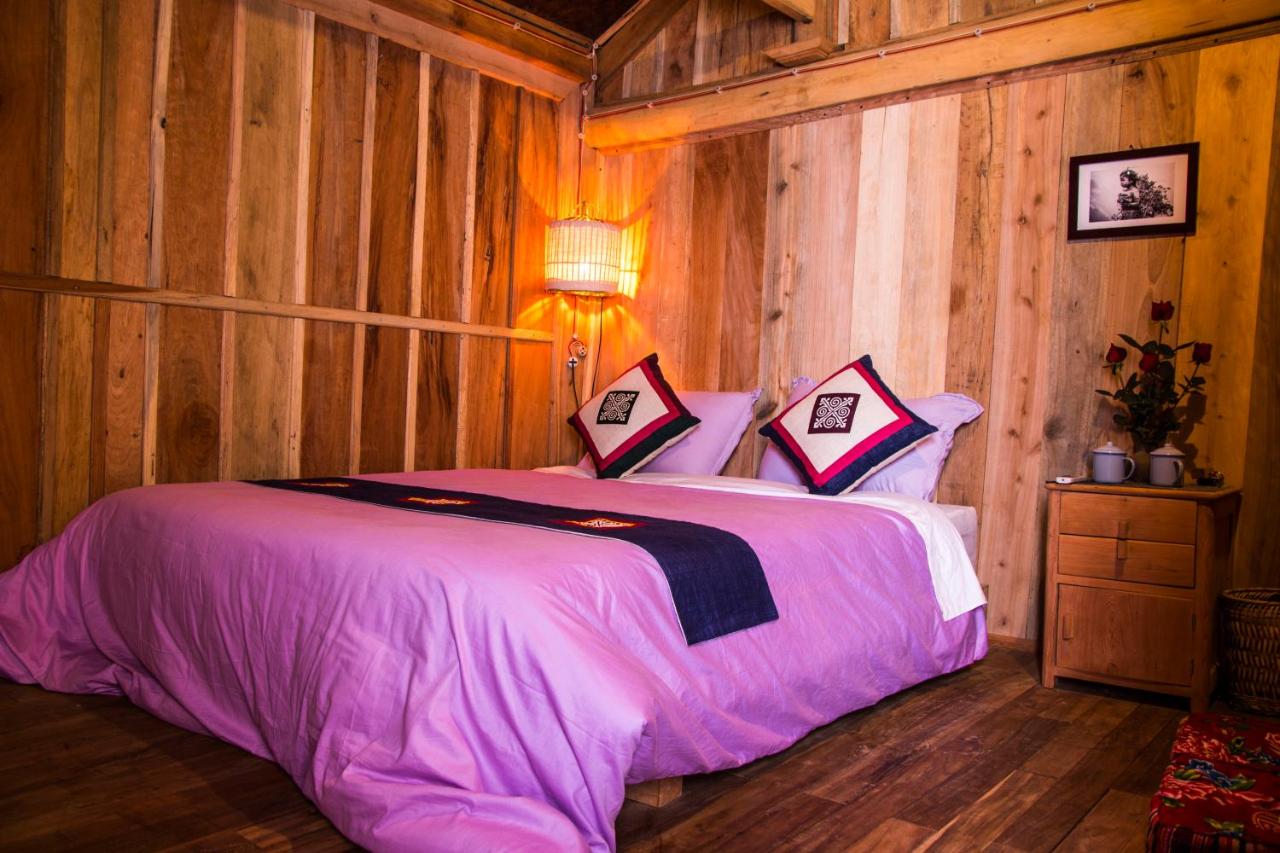
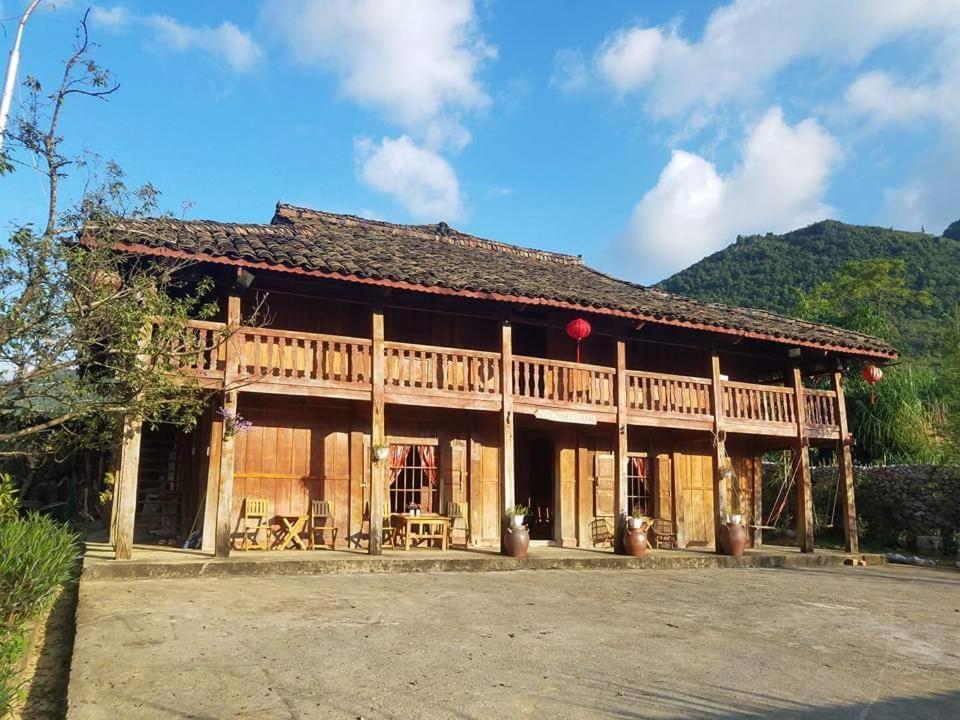
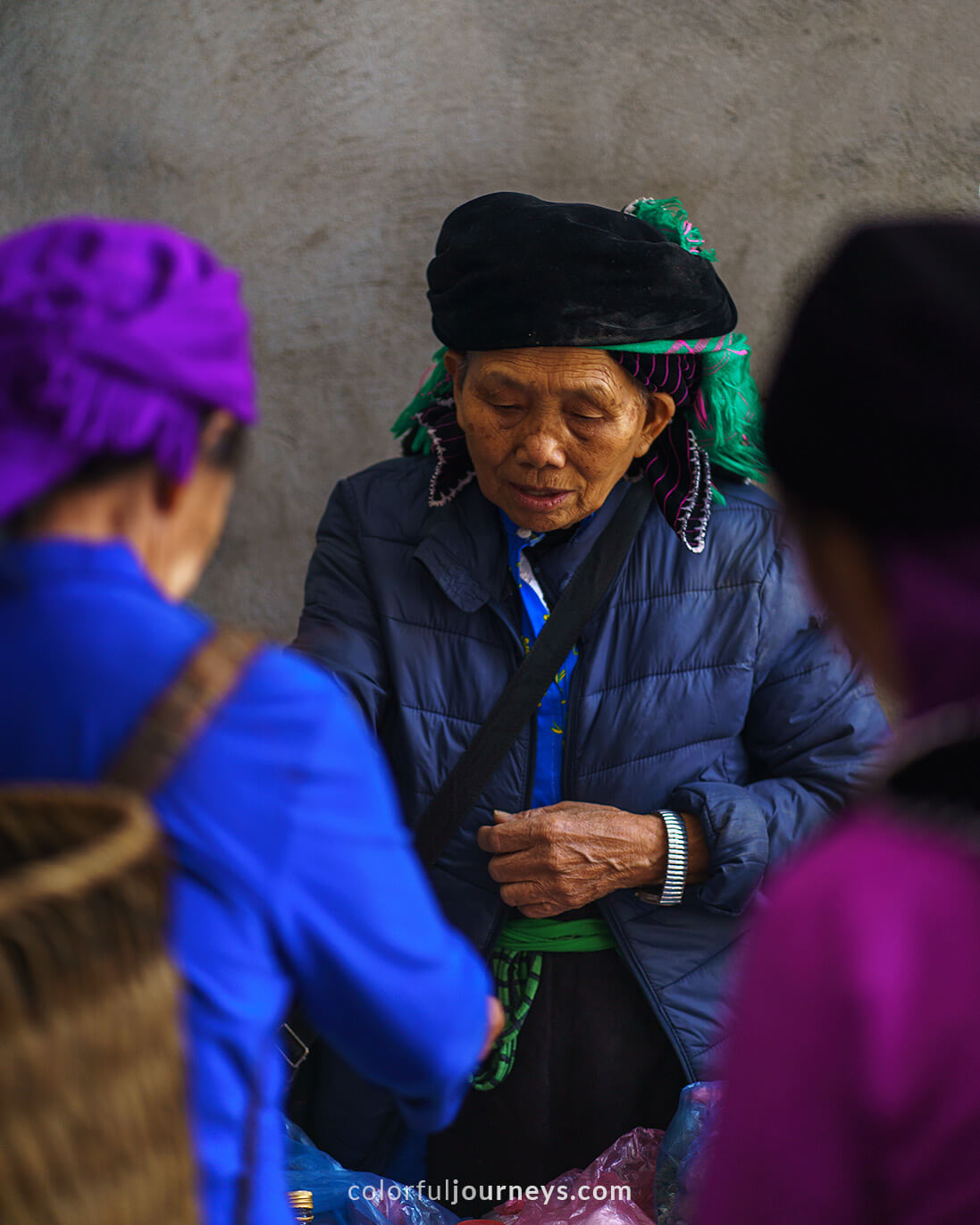

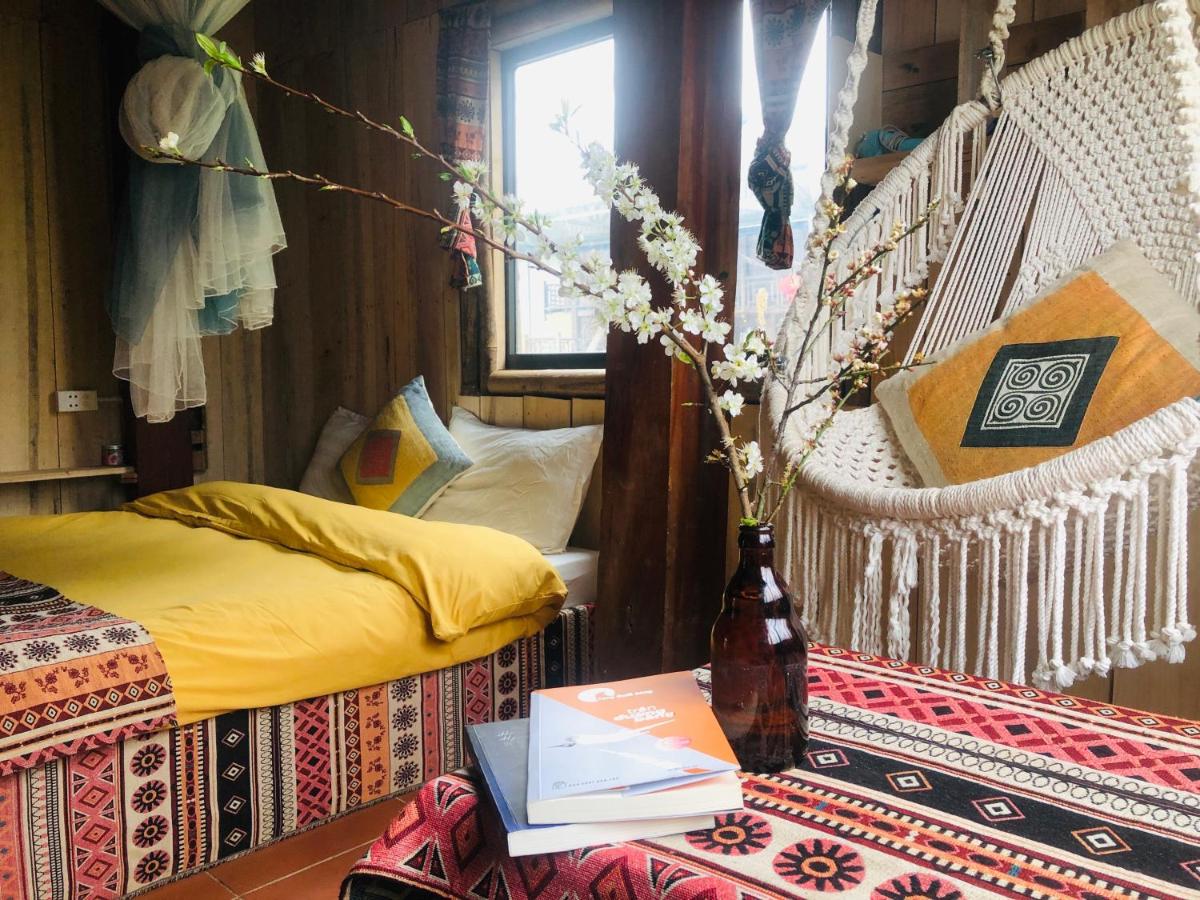
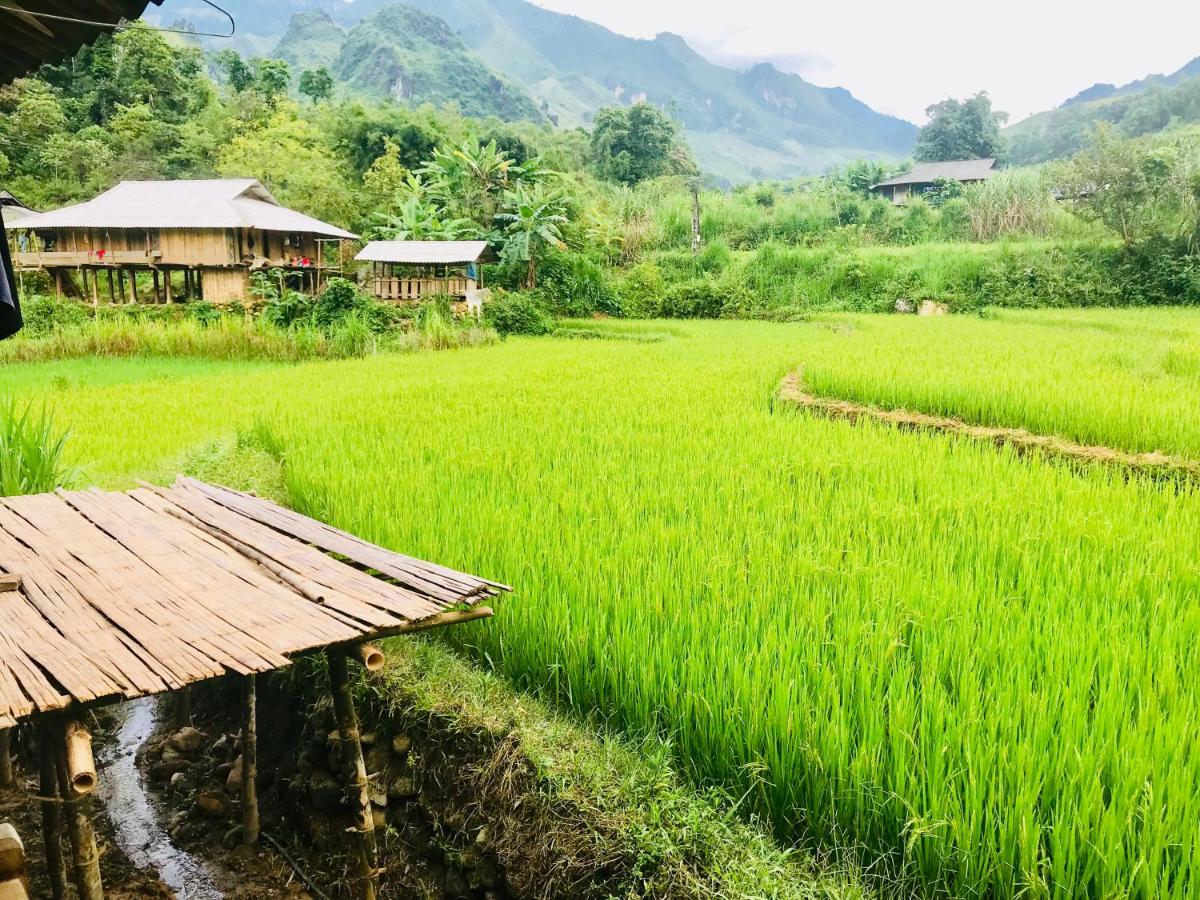



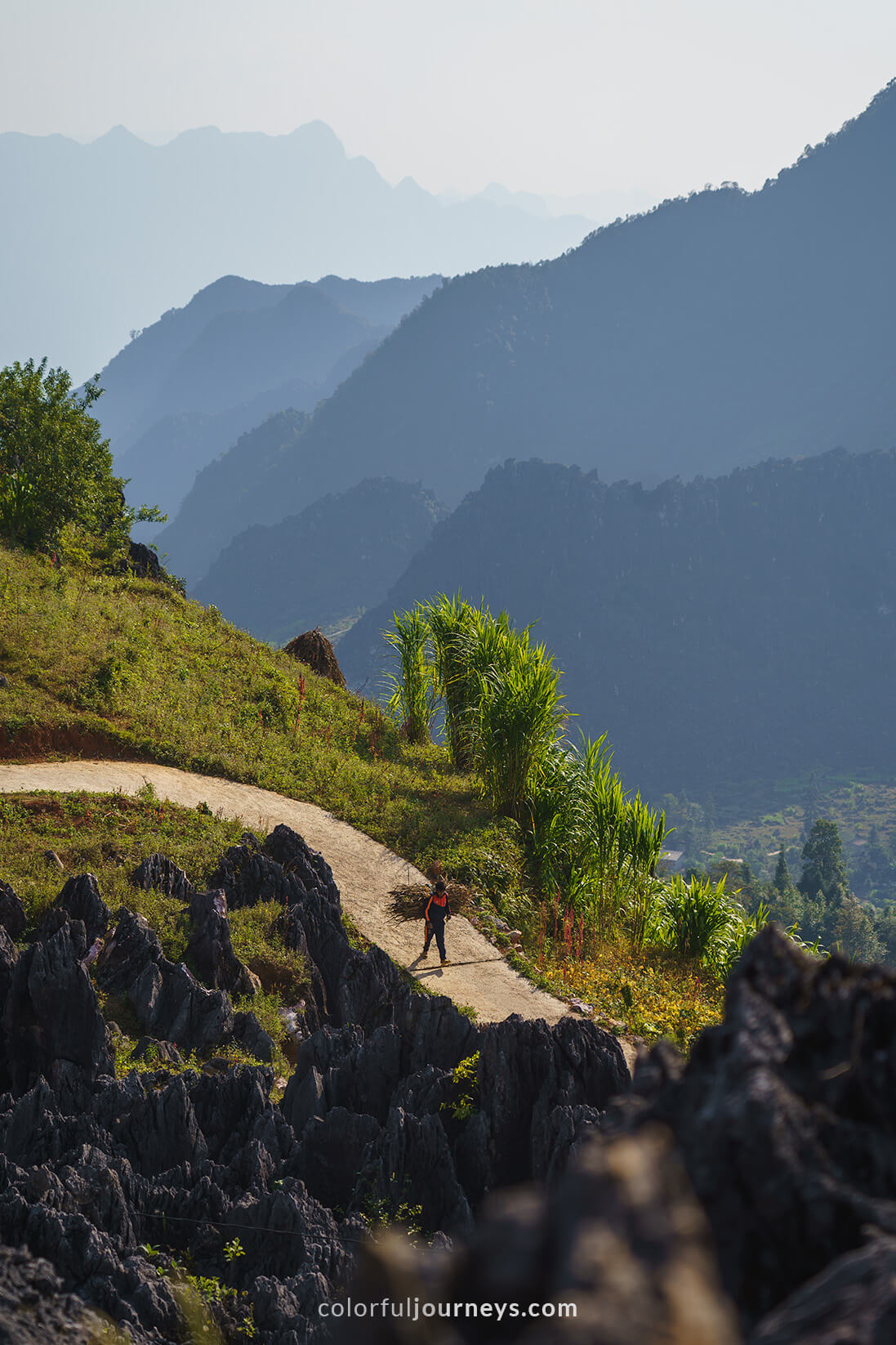
.webp)
.webp)
.webp)